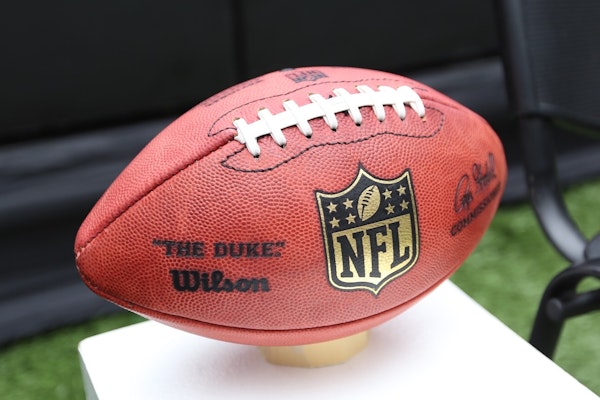
Liberty Mutual Sued for Failing to Defend Manufacturer in Property Damage Cases
Spears Manufacturing claims Liberty Mutual ignored defense duties in two major construction defect lawsuits, raising concerns about insurer obligations in property damage cases.
October 20
Insurance Industry
Legislation & Regulation
Liability
Property
Risk Management
California
Colorado
Louisiana

California Sues Plastic Bag Makers Over False Recycling Claims
The state of California alleges major plastic bag manufacturers falsely labeled their products as recyclable, triggering lawsuits and multimillion-dollar settlements.
October 20
Insurance Industry
Legislation & Regulation
Liability
Risk Management
California

California Court Rules NFL Team Exempt from Workers’ Comp Claim by Retired Player
A retired NFL player’s claim for cumulative injury is denied under California’s tightened workers’ comp rules for out-of-state athletes, highlighting key jurisdictional limits.
October 15
Legislation & Regulation
Liability
Workers' Compensation
California
Georgia

Toyota Recalls 393K Trucks Over Rearview Camera Failures
Rearview camera failures in 2022-2025 Tundra and Sequoia trucks raise crash risk, prompting a free dealership fix.
October 8
Auto
Insurance Industry
Liability
Risk Management

Georgia Funeral Home Investigation Expands With Dozens of New Charges
Georgia state investigators have filed 38 new charges in an ongoing criminal case involving a funeral home that was previously evicted in late 2024.
October 7
Fraud
Insurance Industry
Liability
Litigation
Georgia

Cyber and Environmental Risks Overtake Safety in Transportation Sector Reputational Concerns
A new WTW survey signals a fundamental transformation in the reputational risk profile for transportation companies, shifting away from traditional safety concerns and toward mounting environmental and cybersecurity threats.
October 7
Insurance Industry
Liability
Risk Management

Man Dies After Losing Consciousness on Stardust Racers Ride at Universal’s Epic Universe
A man in his 30s died after becoming unresponsive on the Stardust Racers ride at Universal’s Epic Universe. The attraction remains closed amid an ongoing investigation.
September 18
Catastrophe
Legislation & Regulation
Liability
Risk Management
Florida

Why Food Companies Must Treat Recall Preparedness as a Business Essential
Food recalls can escalate into costly crises without proper planning. Learn how supply chain mapping, business continuity, and mock drills can make or break your response.
September 2
Insurance Industry
Liability
Property
Risk Management

How Insurance Would Cover a Star-Studded Wedding Like Taylor Swift and Travis Kelce’s
From high-limit liability to cyber protection and paparazzi risks, insuring a celebrity wedding like Swift and Kelce’s involves complex underwriting and custom coverage.
August 28
Catastrophe
Insurance Industry
Liability
Risk Management

What the Dollar Tree Helium Tank Lawsuit Reveals About Insurance Coverage Gaps
A helium tank injury led to a legal fight between Dollar Tree and its insurer. The case shows how coverage exclusions and unclear contracts can leave businesses exposed.
August 26
Insurance Industry
Liability
Litigation
Risk Management
Connecticut

How Subcontractors’ Carriers Can Push Back Against Excessive Builder Demands in Florida Claims
In Florida construction-defect cases, subcontractors’ carriers often face inflated demands from builders. Strategic defense can limit exposure to excessive defense cost claims.
August 26
Insurance Industry
Liability
Litigation
Florida

How Diagnostic Errors in Office-Based Practices Are Driving Malpractice Costs and Patient Harm
Cancer misdiagnosis leads the way as office-based diagnostic errors drive high indemnity payouts, highlighting systemic flaws in evaluation, testing, and follow-up processes.
August 25
Liability
Life & Health
Litigation
Risk Management

How Early Conversations About Counsel Selection Can Prevent Claims Disputes
Early, transparent discussions about defense counsel selection during policy placement can prevent costly litigation conflicts and bad faith allegations down the line.
August 20
Education & Training
Insurance Industry
Liability
Litigation

Breaking Down Data Barriers to Strengthen AI Risk Management
Insurers, tech companies, and businesses must securely share data and align strategies to manage AI risks, prevent losses, and support responsible innovation.
August 7
Insurance Industry
Liability
Risk Management
Technology

Insurers Race to Understand AI Risks as Automation Reshapes Liability
As AI transforms industries and increases systemic risk, insurers are racing to develop policies for algorithmic failures, liability questions, and regulatory compliance.
August 5
Insurance Industry
Liability
Risk Management
Technology





